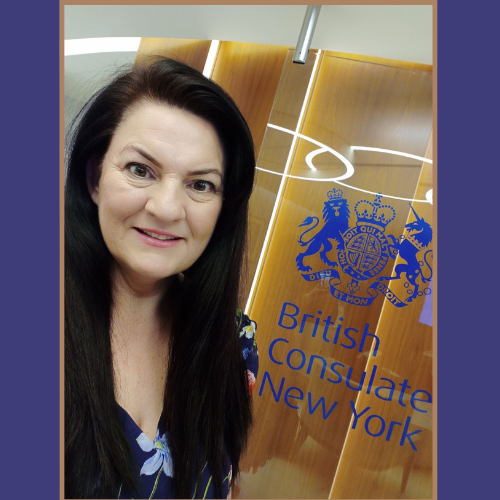After speaking with a UK Minister’s team at an event at the United Nations co-hosted by the UK government, I was invited to a small but powerful gathering at the British Consulate in New York. The event — “Let’s Talk About Sex: How We Can Tackle the Stigma and Discrimination Blocking Disability-Inclusive Sexual and Reproductive Health” — brought together advocates and leaders to confront a topic that is too often ignored.
One in five women has a disability, yet our sexual and reproductive health and rights are still overlooked due to stigma, discrimination, and systemic barriers. It’s time to change that.
Research shows that Autistic women are at an alarmingly high risk of sexual violence:
-
One study found that 88% of Autistic women reported experiencing sexual violence, with many first assaulted before the age of 18.
-
Autistic women are two to three times more likely than non-autistic women to experience sexual violence.
-
Revictimisation is common, meaning those harmed once are more likely to be harmed again.
-
Disabled women in the UK are three times more likely than non-disabled women to experience domestic abuse.
Many Autistic women also report more diverse sexual identities and experiences, which can add to their vulnerability in systems that still don’t understand or respect difference.
Hearing about the #InclusiveFutures programme in Nigeria, funded by UK Aid and led by Sightsavers and BBC Media Action, was incredibly uplifting. This programme has shifted community attitudes and influenced government policy on sexual and reproductive rights. It shows what’s possible when inclusion moves from words to action.
We need spaces like this, where truth is spoken, stigma is challenged, and people listen with open hearts. It’s time we break the silence and ensure that every woman has the right to safety, respect, and self-determination.
References
-
Auticon. 9 femmes autistes sur 10 victimes de violences sexuelles. Link
-
McCarthy, M. et al. (2022). Elevated rates of sexual victimisation in autistic individuals: A systematic review. Link
-
Autism Spectrum News. Identifying and Understanding Risk Factors for Sexual Victimization in Women with Autism Spectrum Disorder. Link
-
Community Care. Disabled people nearly three times more likely to experience domestic abuse than non-disabled peers. Link
-
SafeLives. Spotlight: Disabled People and Domestic Abuse. Link
-
Women’s Aid. Disabled Women and Domestic Violence. Link
Author’s Note
I write about these topics from a place of lived experience, research, and advocacy. As an Autistic woman, I know firsthand the challenges of navigating sexual and reproductive health in a world that often overlooks us. Sharing these stories and statistics isn’t easy, but it is necessary. My hope is that by speaking openly we can challenge stigma, support each other and create systems that truly include and protect all women.

